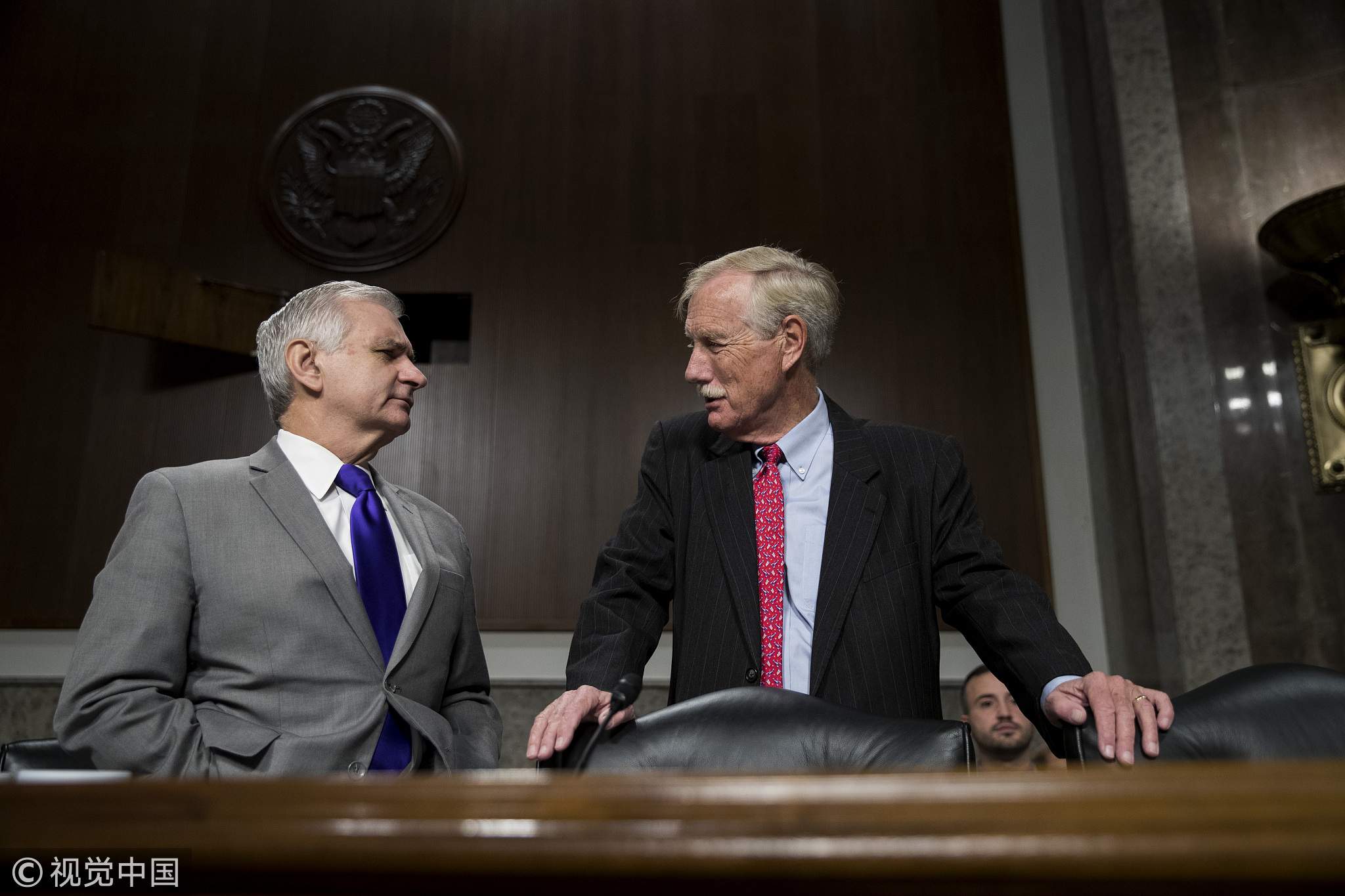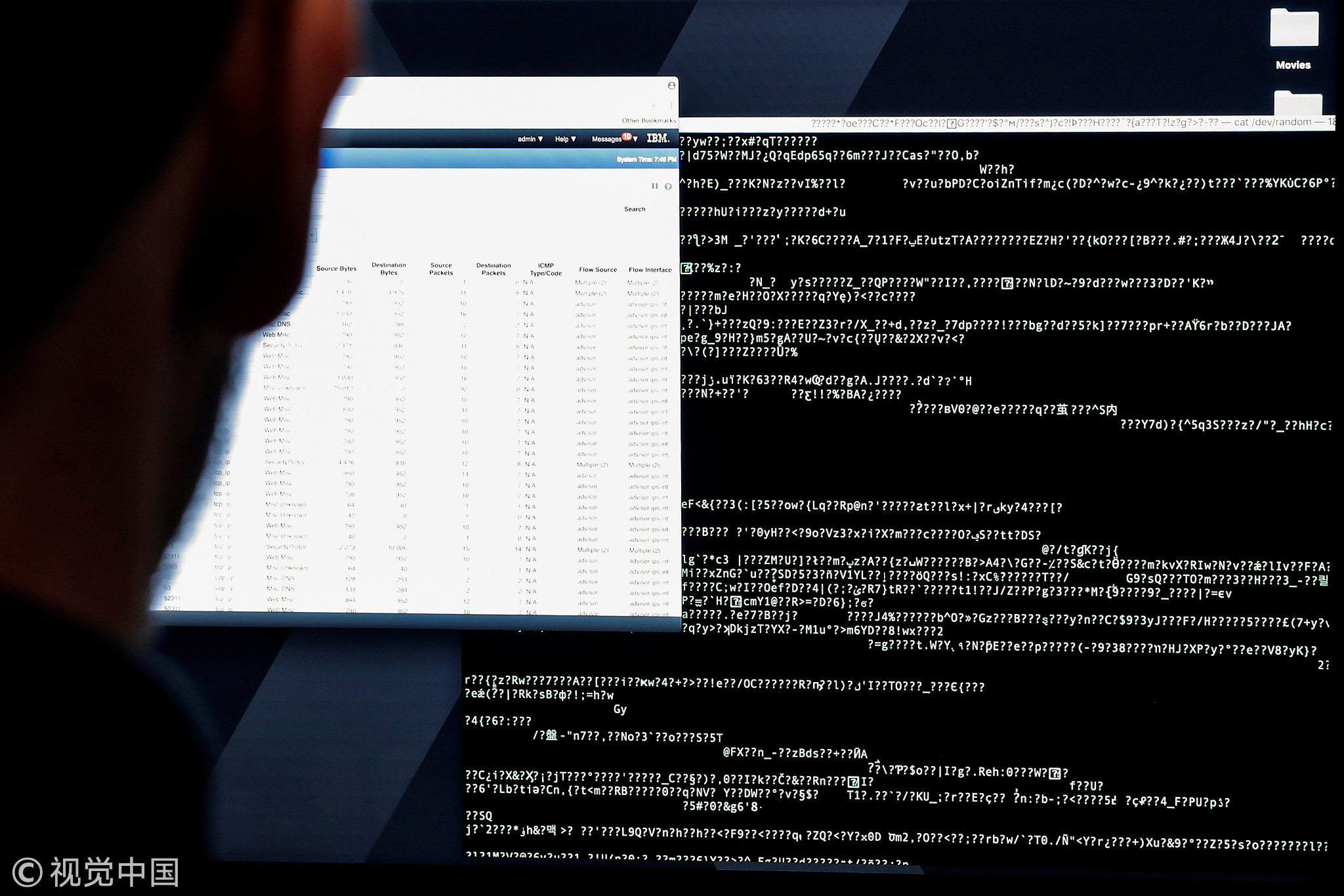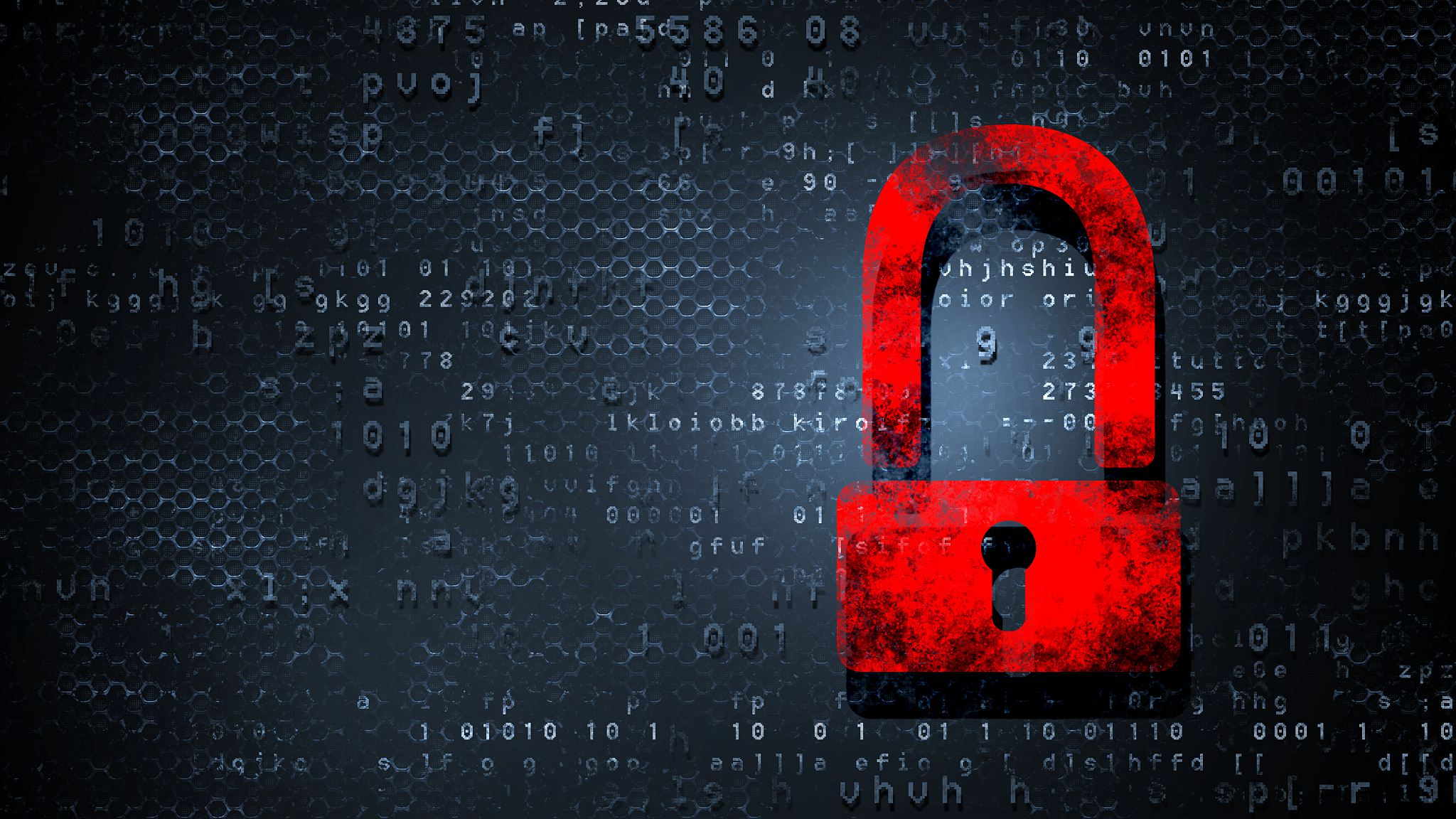Editor's note: Dr. Yuan Sha is an assistant research fellow at the Department for American Studies at the China Institute of International Studies. The article reflects the author's opinion, and not necessarily the views of CGTN.
Remember the optimistic moment when Chinese President Xi Jinping and former U.S. president Barack Obama signed the China-U.S. cyber cooperation agreement? That era of cooperation is gone, and the issue of cyber security has crawled back onto the U.S. security agenda and become a new point of contention in the China-U.S. Relations.
The 'China Initiative' is in high gear
The U.S. Justice Department announced on Thursday that it had charged two Chinese hackers with “global computer intrusion campaigns targeting intellectual property and confidential business information.”
The indictment alleged that the two men were members of the so-called Advanced Persistent Threat 10 (the APT-10) hacking group who acted in association with the Chinese government and engaged in global computer intrusions for more than a decade.
This case is part of an intensifying campaign of U.S. Justice Department's “China Initiative” to identify, arrest and prosecute Chinese nationals allegedly violating U.S. laws. The rationale behind this initiative is that the Chinese government is engaging in cyber attacks with strategic aims and security implications.
The Trump administration's National Cyber Security Strategy which unveiled in September accused that “China engaged in cyber-enabled economic espionage and trillions of dollars of intellectual property theft.”

Sen. Jack Reed (L) talks with Sen. Angus King before the start of a Senate Armed Services Committee hearing concerning the roles and responsibilities for defending the nation against cyber attacks, on Capitol Hill in Washington, DC, October 19, 2017. /VCG Photo
Sen. Jack Reed (L) talks with Sen. Angus King before the start of a Senate Armed Services Committee hearing concerning the roles and responsibilities for defending the nation against cyber attacks, on Capitol Hill in Washington, DC, October 19, 2017. /VCG Photo
In a Congressional hearing earlier this month, senior law enforcement officials named China outright as the most serious national security threat facing the U.S. And U.S. intelligence officers went further in announcing there were Chinese spies in all 50 U.S. states.
In the past several months, the U.S. Justice Department has announced several high-profile cases against Chinese nationals on these charges. With this initiative in high gear, we should expect more of these cases to come.
An international cyber coalition against China?
Since there is no extradition agreement between the U.S. and China, it is still uncertain how the U.S. would arrest the two men and bring them to court.
To this end, the U.S. is taking advantage of its extradition treaties with its allies and partners for law enforcement. The U.S. Justice Department said it was coordinating with 11 other nations on countering the Chinese cyber threat, including Brazil, Canada, Finland, France, Germany, India, Japan, Sweden, Switzerland, the United Arab Emirates and the United Kingdom.
The U.S. has already made some success in this direction. In October, the Belgian government arrested Yanjun Xu, a Chinese government official, and extradited him to the U.S. for allegedly stealing U.S. trade secrets in the aviation industry.
Earlier this month, the Canadian authorities arrested Meng Wanzhou, the CFO of China's tech giant Huawei, at the request of the U.S., who is on bail and still facing extraditions to the U.S.

Huawei chief financial officer Meng Wanzhou arrives at a parole office with a member of her private security detail in Vancouver, December 12, 2018. /VCG Photo
Huawei chief financial officer Meng Wanzhou arrives at a parole office with a member of her private security detail in Vancouver, December 12, 2018. /VCG Photo
The U.S. is also ramping up efforts to build an international cyber coalition against China. So far, the U.S. has successfully encouraged the United Kingdom and Canada to blame China for a massive global cyber attack. Germany, Australia and Japan are also expected to be closing ranks with the U.S.
A self-victimized aggressor
As the world's No.1 cyber power, it is far-fetched for the U.S. to portray itself as a victim in this hyped-up “China cyber threat” drama.
Ever since the end of the Cold War, the U.S. has become the sole superpower in the world and it has been pursuing “maximum security,” which means only unrivaled supremacy in every strategic domain, including land, sea, air, space and cyber, would guarantee its security.
Any potential challenger would be seen as a threat to its national security. This distorted sense of security throws the U.S. into a perpetual state of anxiety. After all, security is in the eyes of the beholder, and it is more perceptual than real.
In reality, with the most sophisticated cyber technologies, a sprawling intelligence network and a global surveillance apparatus, the U.S. is by far the most potent cyber aggressor and the biggest cyber threat to any country on earth.

An employee participates in a training exercise in IBM's X-Force Command C-TOC, a mobile Cyber Tactical Operations Center, in the Brooklyn borough of New York, U.S., October 15, 2018. /VCG Photo
An employee participates in a training exercise in IBM's X-Force Command C-TOC, a mobile Cyber Tactical Operations Center, in the Brooklyn borough of New York, U.S., October 15, 2018. /VCG Photo
The U.S. government hackers are particularly active in crippling enemies' cyber networks and are widely believed to have incapacitated the Iran nuclear project by cyber attacks. And the notorious Edward Snowden leak revealed that the U.S. was even tapping on its closest allies, such as the German chancellor and the Israeli prime minister.
On the contrary, China, as a late comer in the cybersphere, has long been a victim of cyber attacks from other countries, including the U.S. Thus, in the 2005 China-U.S. cyber cooperation agreement, the U.S. government agreed to restrain its cyber attacks against China.
It is also unfair to accuse China of enriching itself by taking advantage of the U.S. through intellectual property theft and industrial espionage.
China has already become a world leader in innovation, and independently developed technology has made unique contributions to its rapid economic growth.
Rather than seeing the U.S. as defending itself against China, it is more accurate to say that the U.S. is mounting on a preemptive strike on China's growing cyber capabilities.
By tearing down the nascent China-U.S. cyber cooperation mechanism, the U.S. runs the risk of throwing the two countries into a cyber conflict or even cyber warfare. Cyber security is coming back, but with a vengeance.
(If you want to contribute and have specific expertise, please contact us opinions@cgtn.com.)





